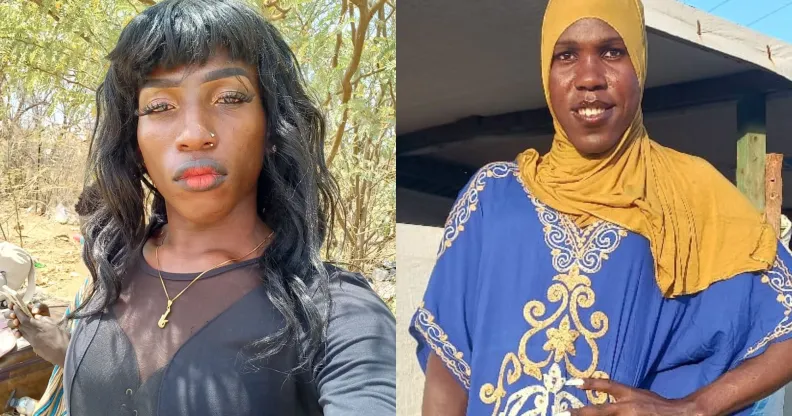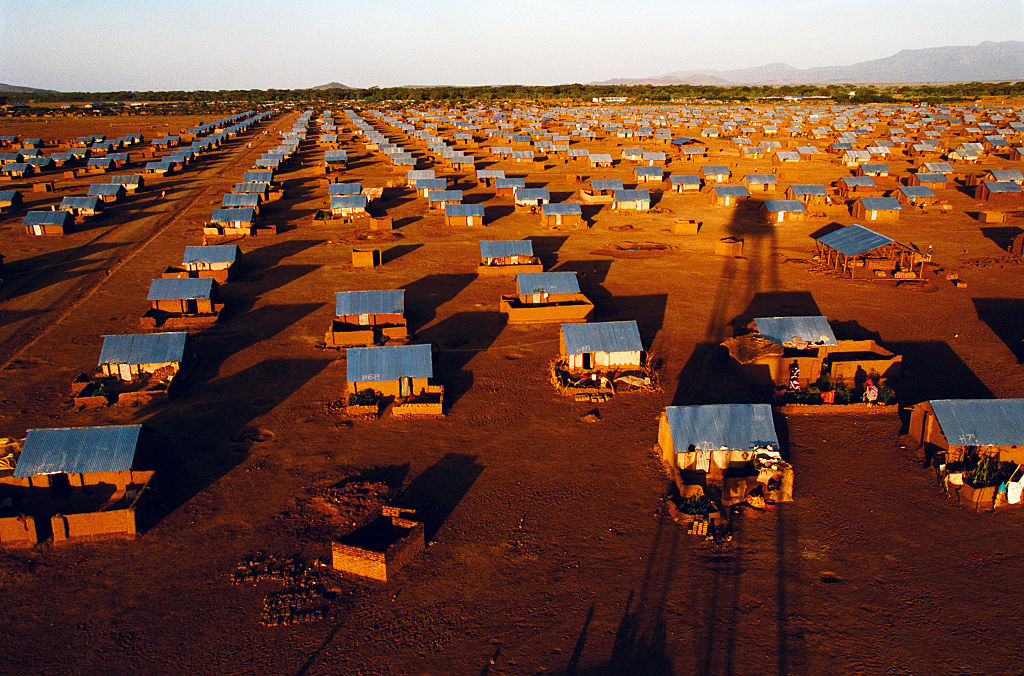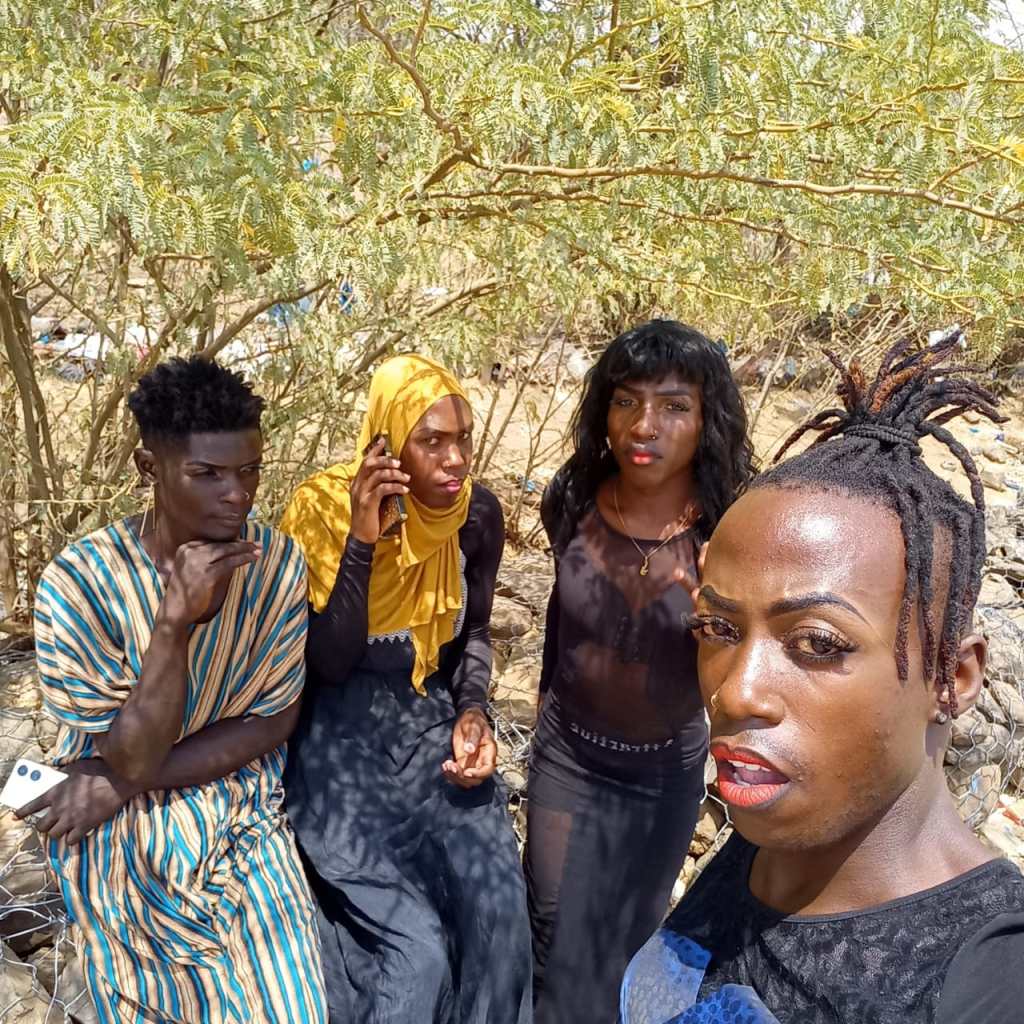Trans women beaten, cut and ‘forcibly undressed’ in Kenyan refugee camp: ‘They see us as the devil’

Cyara (L) and Pretty Peter (R) are among the trans women in Kakuma Refugee Camp. (Supplied)
When Cyara Kaira fled her home in Uganda, she hoped to find safety elsewhere – but in Kenya’s notorious Kakuma Refugee Camp, life has only gotten worse.
Like so many others who are languishing in the camp today, Cyara had no choice but to leave home. Her family were “hunting” her for being a trans woman, she tells PinkNews.
After being imprisoned and facing threats to her life, Cyara made the difficult decision to leave. Her journey to Kenya was laced with hardship, but what kept her going was the feeling that she was doing the right thing, that there might be some hope on the other side.
But in Kakuma Refugee Camp, there was no light.
She arrived in the camp in May 2021. When she was finally assigned a block to live in, she found herself living in an area with people from different cultures – many of whom were outwardly hostile to LGBTQ+ people.
Cyara was forced to live with people who believed “that when they kill an LGBTI [person] they are supposed to go to heaven”, she tells PinkNews.

People have physically assaulted her, while others have forcibly undressed her so they could see what genitals she had. She and other trans people in the camp have had people turn up to their lodgings with machetes, stones and sticks to beat them with.
“We have wounds. We have been stitched several times. We’ve been beaten. Our houses have been burnt. We are homeless. Imagine being homeless in a refugee camp – looking where to sleep, looking for food, looking for safety,” she says.
Cyara’s experience is backed up by a recent report from the National Gay and Lesbian Human Rights Commission (NGLHRC) and Amnesty International. Together, they found that LGBTQ+ people in Kakuma Refugee Camp routinely face hate crime, violence and rape, amid other disturbing human rights violations.

The report, based on interviews with 41 LGBTQ+ asylum seekers and refugees, reveals that perpetrators of anti-LGBTQ+ violence are enabled by authorities who are at best reluctant, and at worst unwilling, to do anything about it.
As far as Cyara sees it, a reckoning is long overdue.
Trans people are seen as the ‘devil’ in Kakuma Refugee Camp
Pretty Peter is another trans woman in the Kakuma Refugee Camp, who is also from Uganda.
In 2019, she was in a bar with other queer people when police burst in and raided it. In a decisive blow, she was caught wearing a dress.
“The community rejected me. My family rejected me,” Pretty Peter tells PinkNews.
She eventually fled to Nairobi before making her way to Kenya. She was sent to the Kakuma Refugee Camp in 2021.

“I thought I had reached a better place where I could express myself, where I can dress how I want, so I thought life would be good, but I was so disappointed,” she says.
Cyara describes Pretty Peter as her “sister”, but connections like the one they share are hard to come by.
Pretty Peter says she too has been attacked in the camp – and workers have done little to protect her.
“Everyone wants to beat you if you put on a dress. Everyone looks at you as something who is the devil,” she says.
Right now, the future is uncertain for people like Cyara and Pretty Peter – they don’t know how long it’s going to take for their asylum applications to be processed. While they wait, all they can do is try to stay safe in a climate where their very existence is seen as a threat.
Right now, all they want is for the wider LGBTQ+ community to hear their voices – to fight for them.
“Advocate for our right to freedom because it’s a lot that we are going through,” Cyara says.
“We need your voice because we are voiceless.”
How did this story make you feel?

